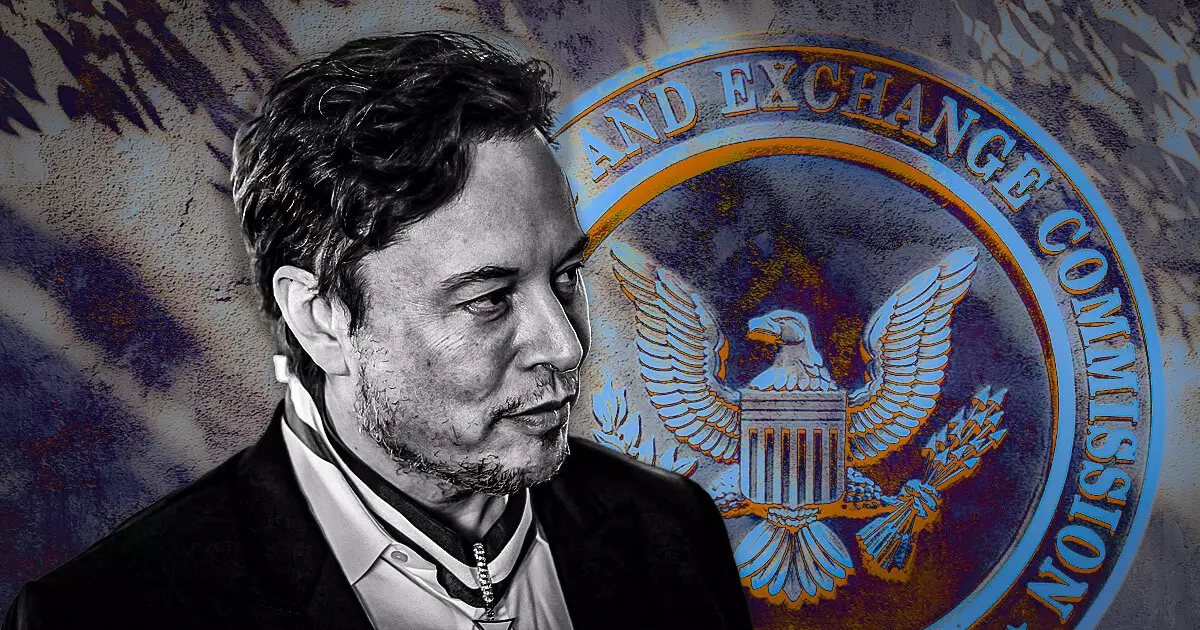In a startling move, the Department of Government Efficiency (DOGE), under the direction of Elon Musk, has turned its investigative lens toward the US Securities and Exchange Commission (SEC). Known for its recent call to the public for information regarding inefficiencies and unethical practices within the SEC, DOGE’s approach signals not just a critique of governmental processes but a broader intent to reform an agency that has faced ongoing scrutiny. The Feb. 17 solicitation on social media platform X encourages whistleblowers to step forward, suggesting that DOGE is taking a no-holds-barred approach to expose waste, fraud, and abuse.
What is particularly striking about this initiative is its public outreach strategy. By inviting private messages from citizens about their experiences and observations related to the SEC’s operations, DOGE is attempting to harness the power of collective intelligence. This tactic not only democratizes the oversight process but may also pave the way for an array of revelations surrounding the questionable practices of the SEC.
Pushback and Concerns
Despite DOGE’s well-intentioned reforms, the initiative has not been without controversy. High-profile figures, including Judge Tanya Chutkan, have expressed significant misgivings about the department’s operational methodologies. Critics maintain that while reform is necessary, the tactics employed by DOGE may lead to further bureaucratic complications rather than resolve the existing inefficiencies. This raises a critical question: Can a government agency genuinely examine itself and bring about meaningful change through aggressive external probes?
Moreover, the focus on the SEC highlights a chilling atmosphere within the regulatory environment, particularly in the cryptocurrency sector. As DOGE aims to address broader systemic issues within the SEC, there lurks an inherent tension: the need for rigorous oversight against the backdrop of a necessity for innovation and growth in the rapidly evolving digital asset space.
Within the cryptocurrency community, the implications of DOGE’s inquiry could be profound. Paul Grewal, the Chief Legal Officer of Coinbase, has already proposed reforms aimed at holding the SEC accountable for excessive enforcement actions. This call for accountability, particularly in light of the SEC’s historical missteps and legal defeats under former Chair Gary Gensler, resonates deeply within an industry that often grapples with regulatory uncertainties.
As figures like Grewal emphasize, the SEC’s mischaracterization of certain cryptocurrencies as securities has led to substantial financial ramifications for investors, with countless retail holders facing immense losses. The push for clarity and reform in regulatory practices is not merely an administrative issue; it affects lives, livelihoods, and the very future of digital asset adoption. Thus, the hope surrounding DOGE’s investigations is that they will prompt introspection within the SEC and lead to policy changes that protect rather than hinder investors.
The stakes are high. As DOGE probes deeper into the SEC’s inner workings and practices, the outcome could set a precedent for how regulatory bodies operate in the age of digital finance. Understanding the decision-making processes that led to questionable regulatory interpretations will not only shed light on past failures but may also engender a more balanced future approach.
Ultimately, whether DOGE can successfully navigate the complexities of governmental regulation—or if it becomes another chapter of bureaucratic inefficiency—remains to be seen. However, this ongoing dialogue between government oversight and public engagement may just be the catalyst that the cryptocurrency sector desperately needs to ensure a more equitable trading environment.















Leave a Reply